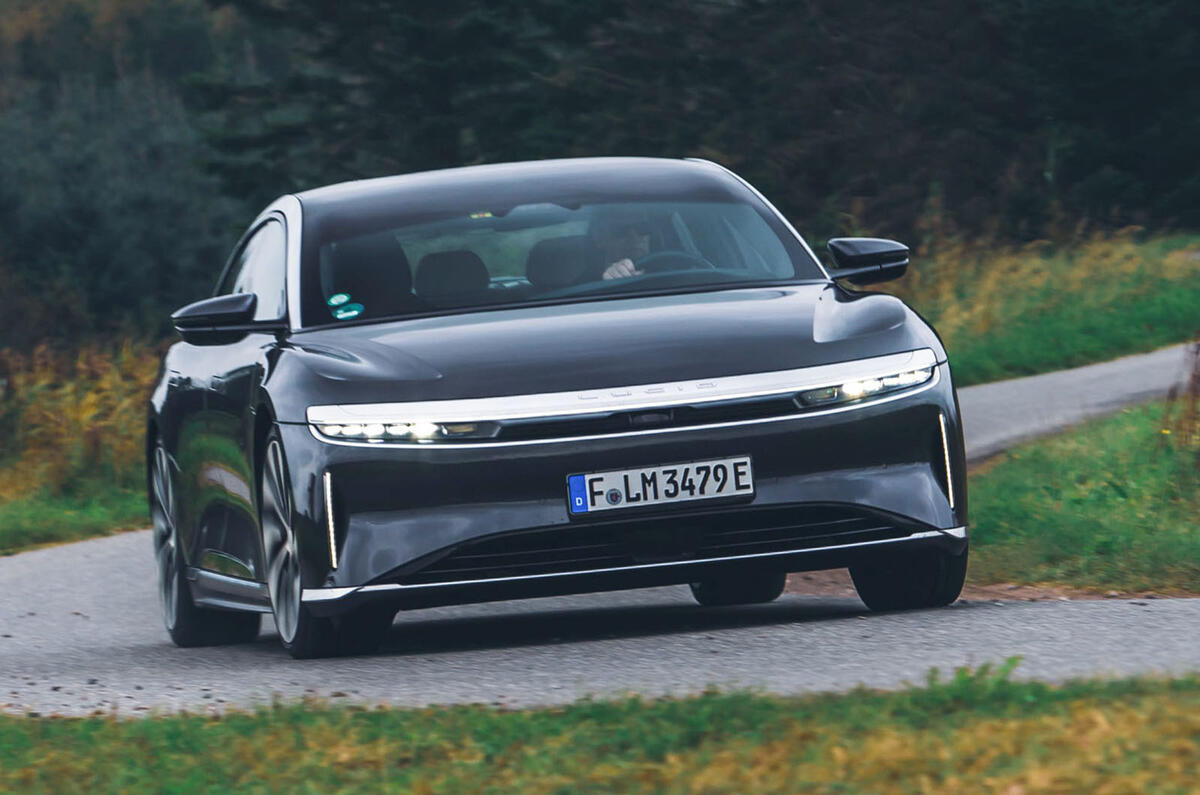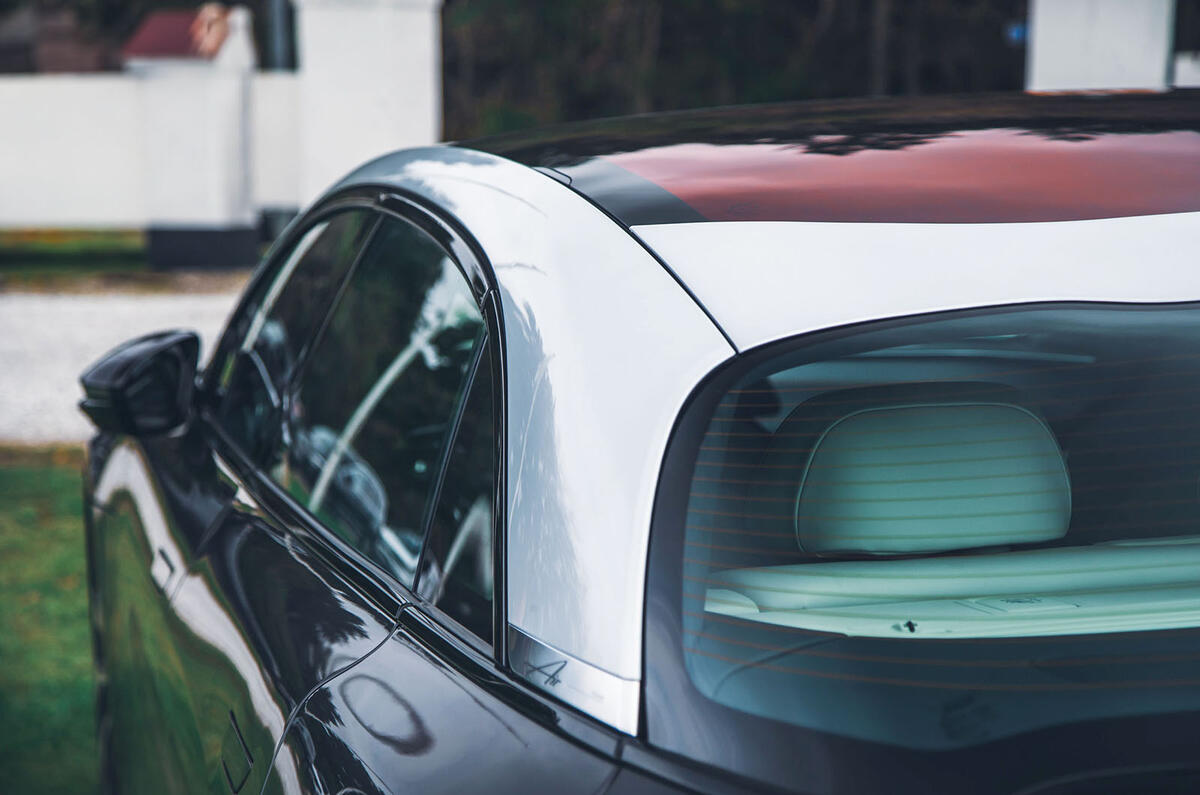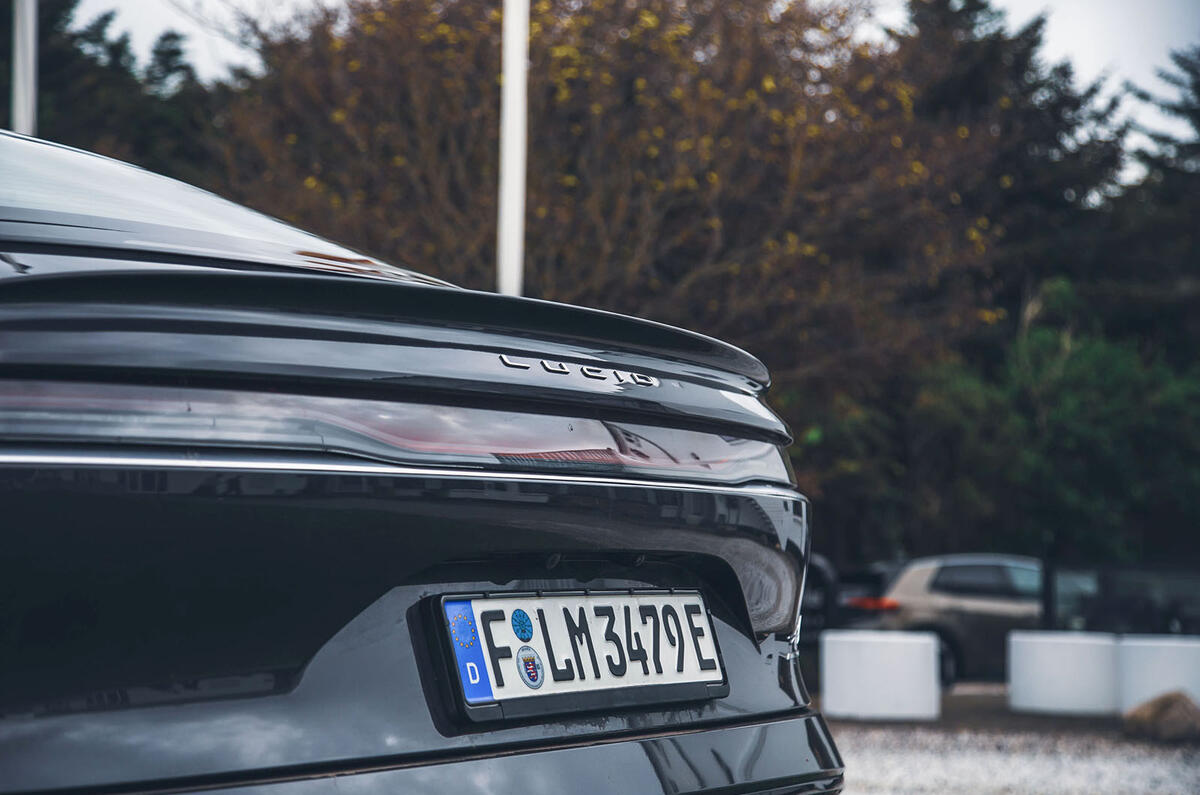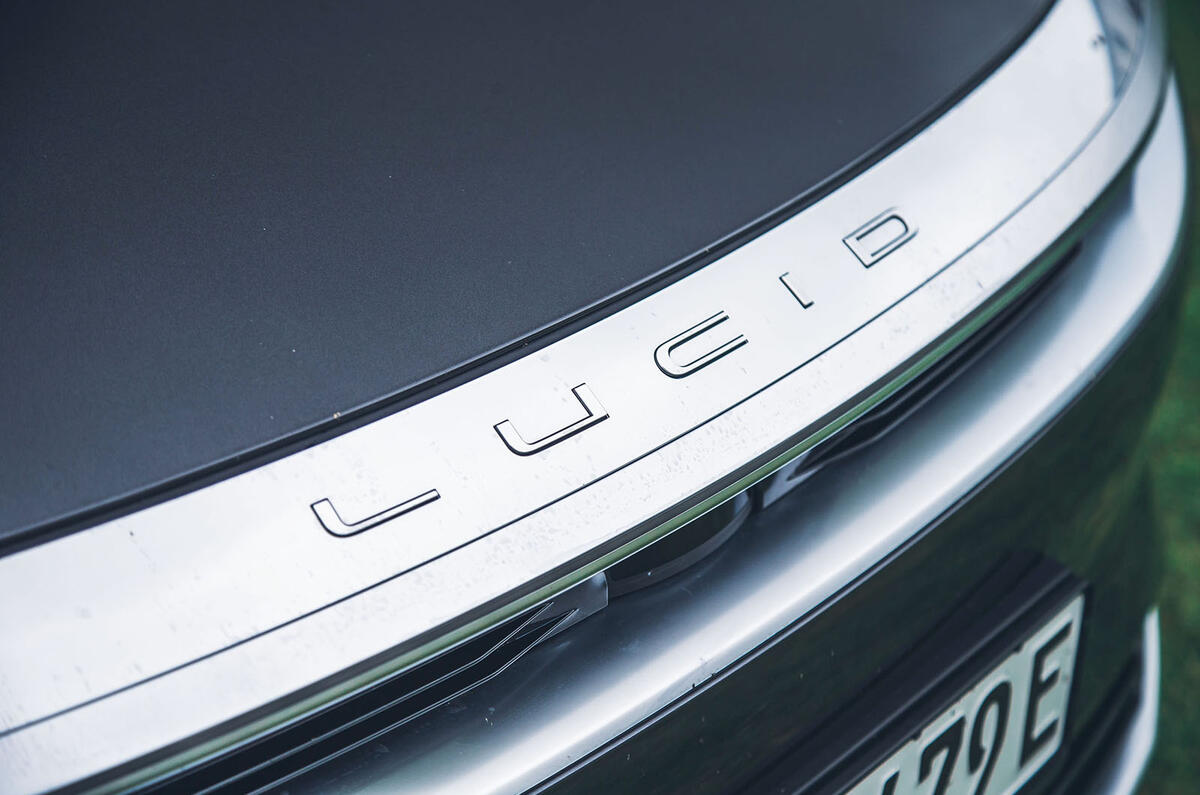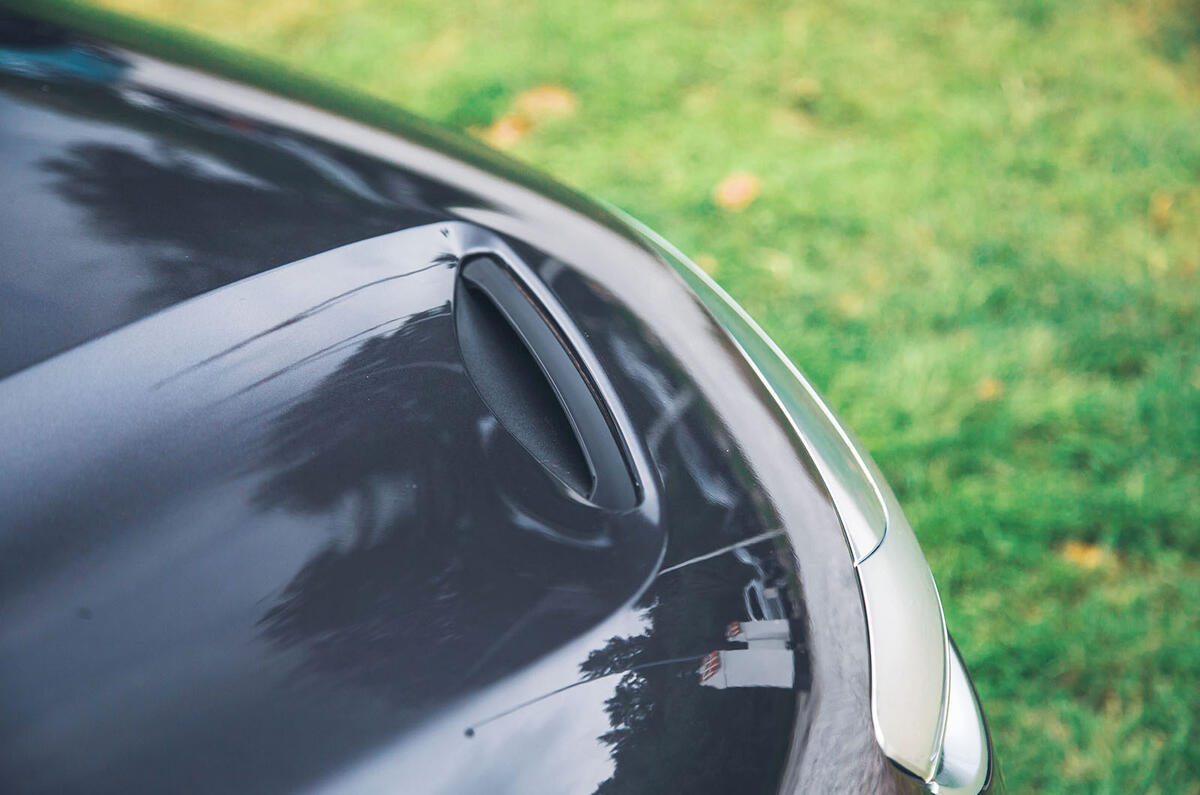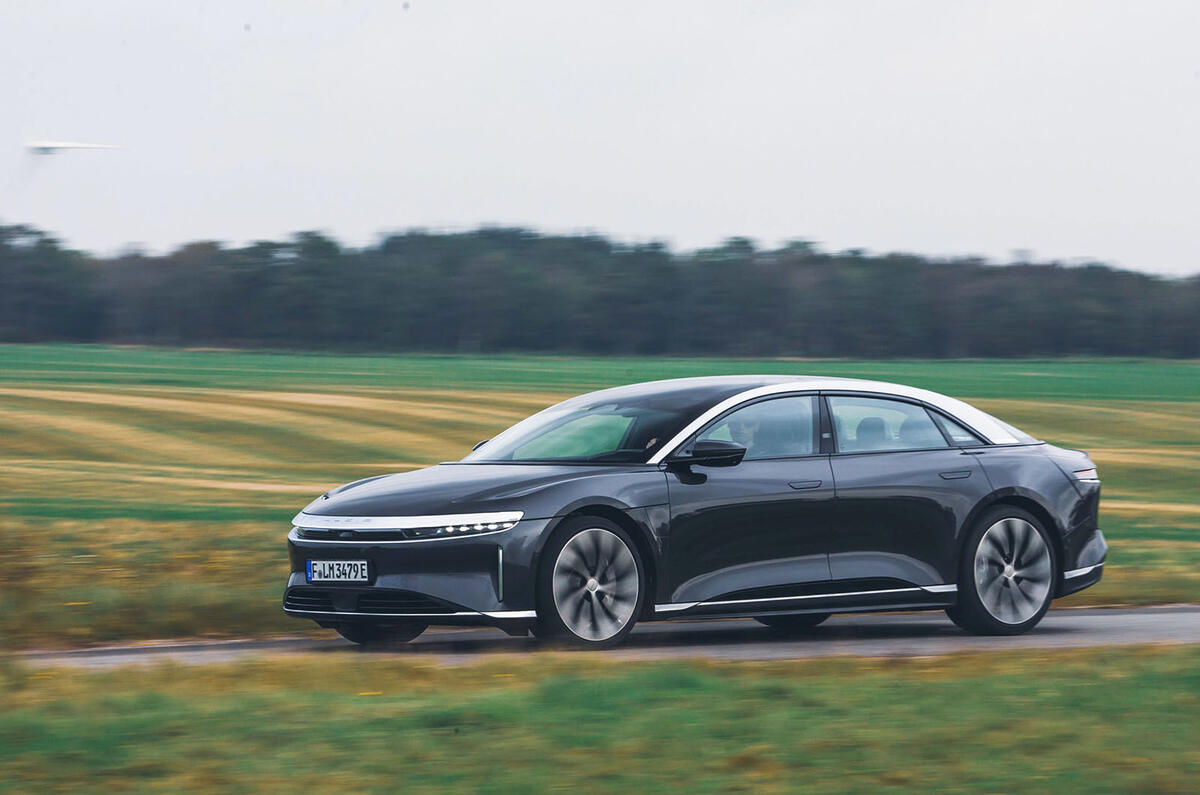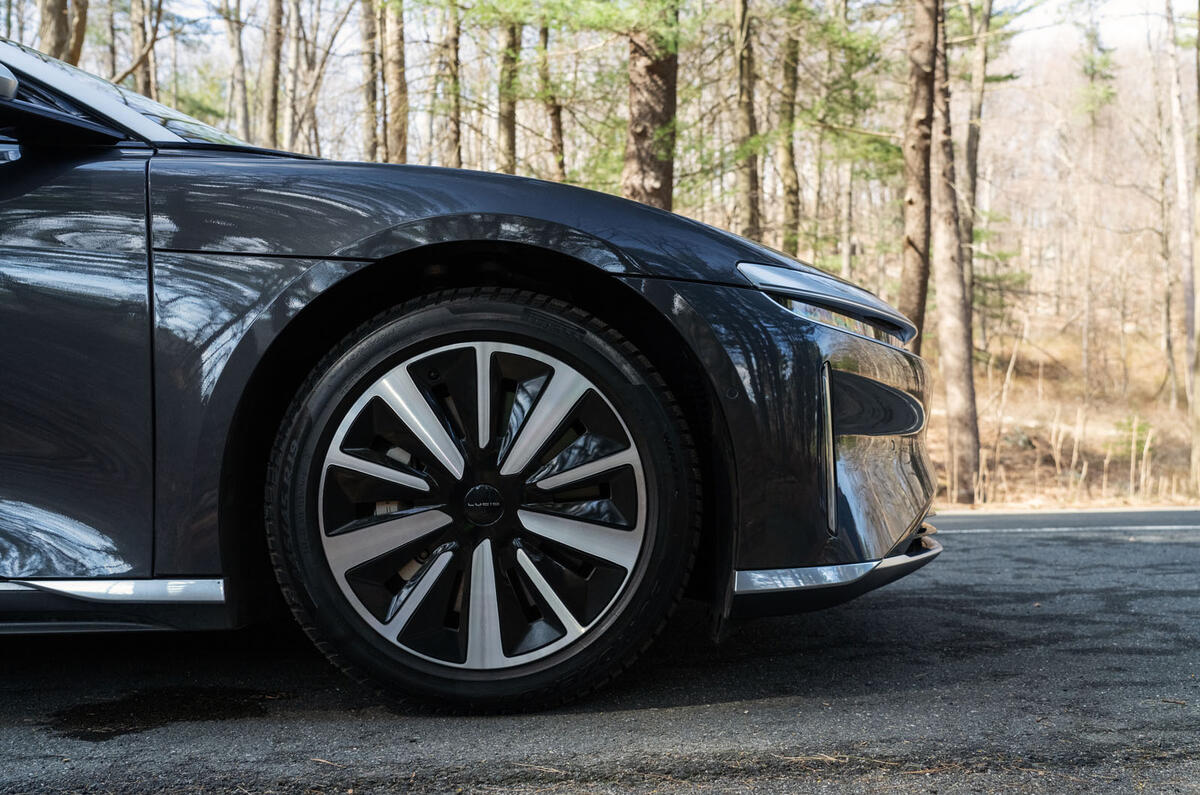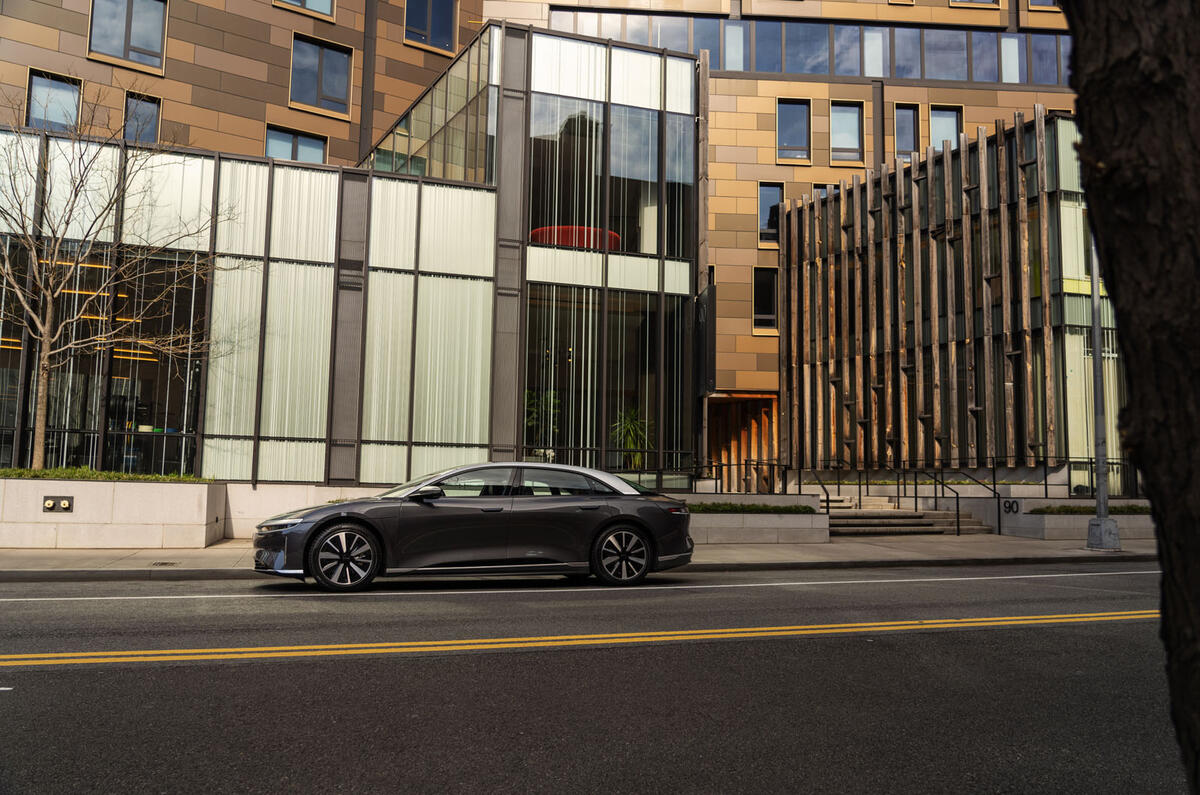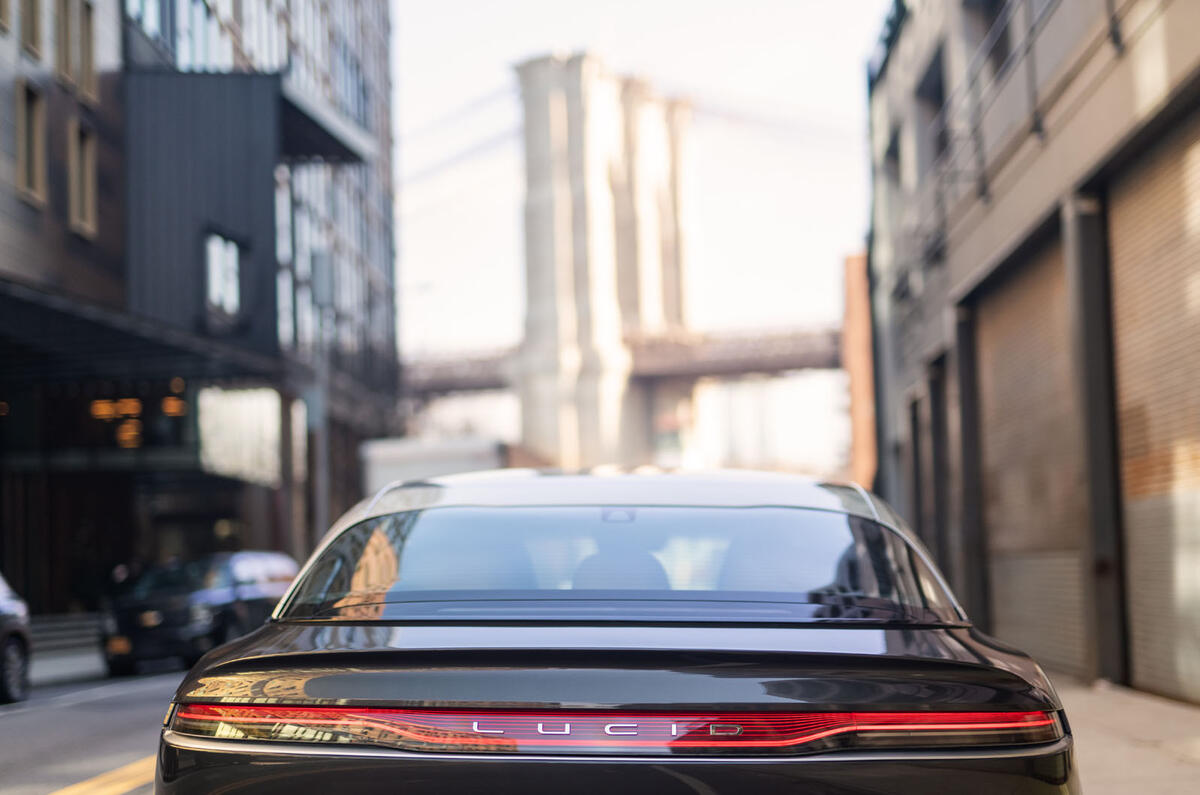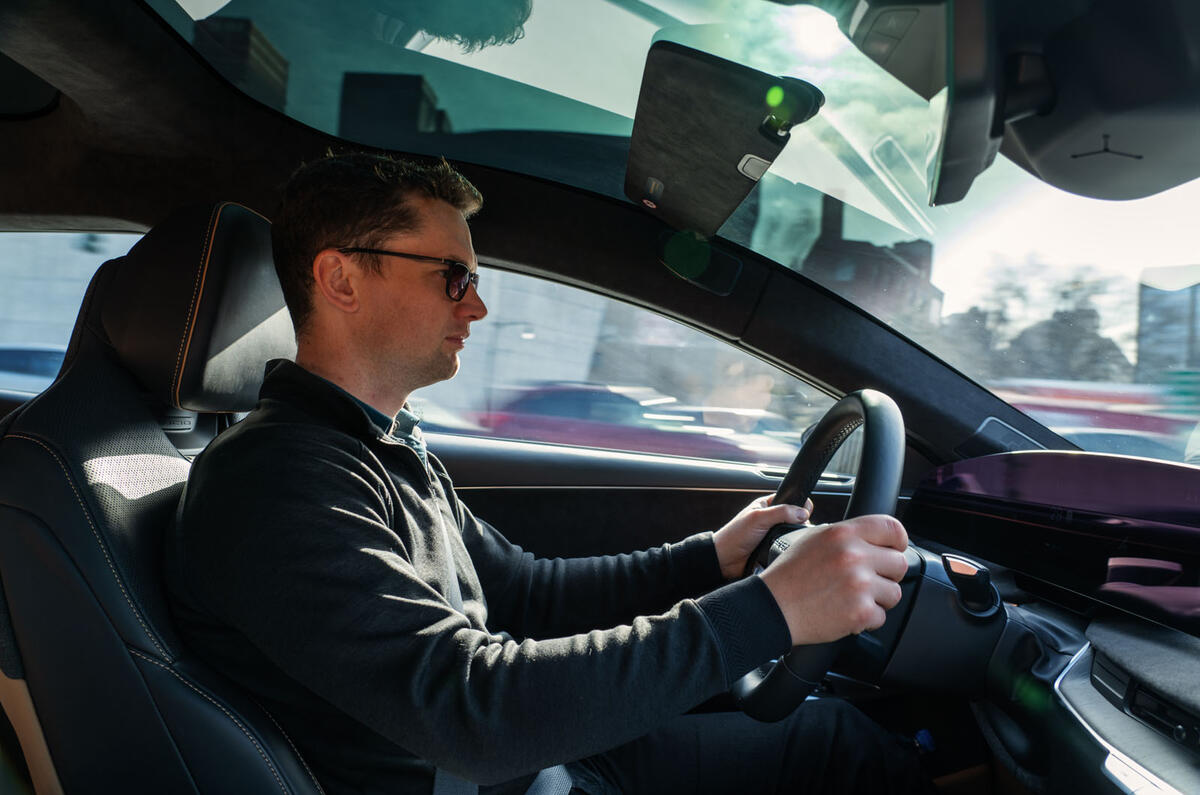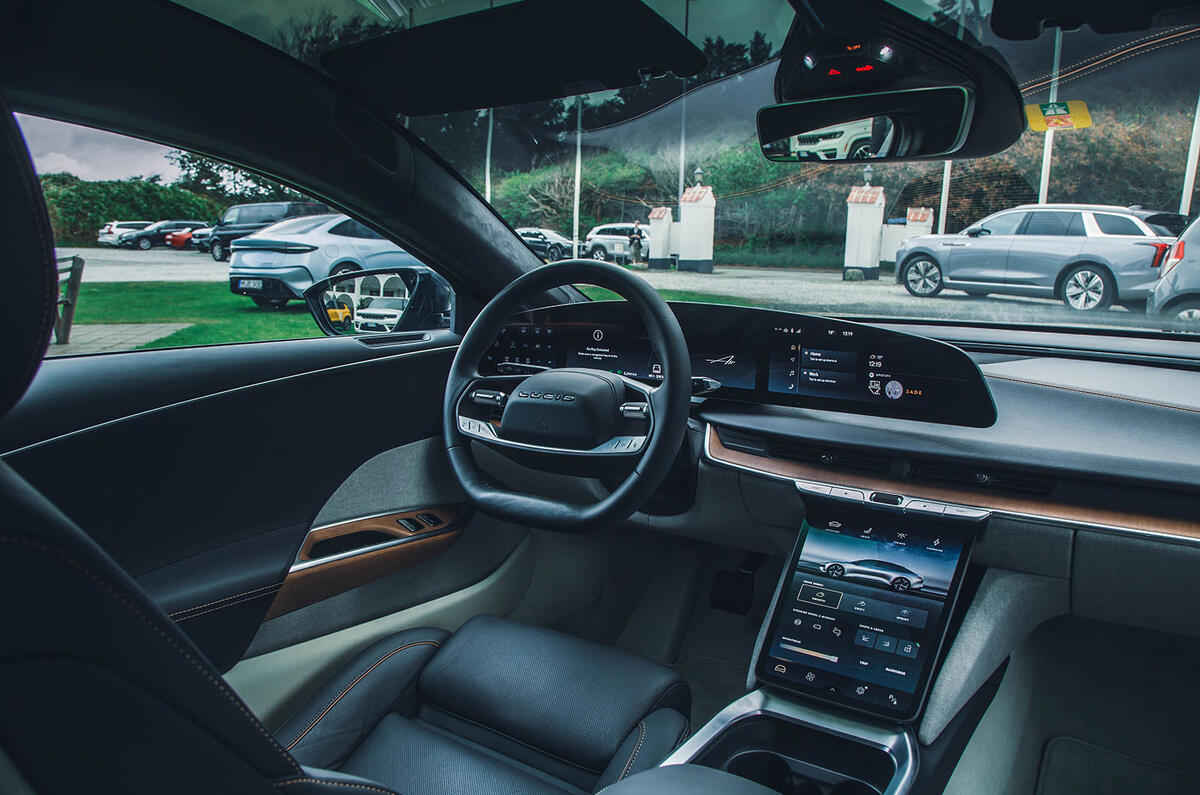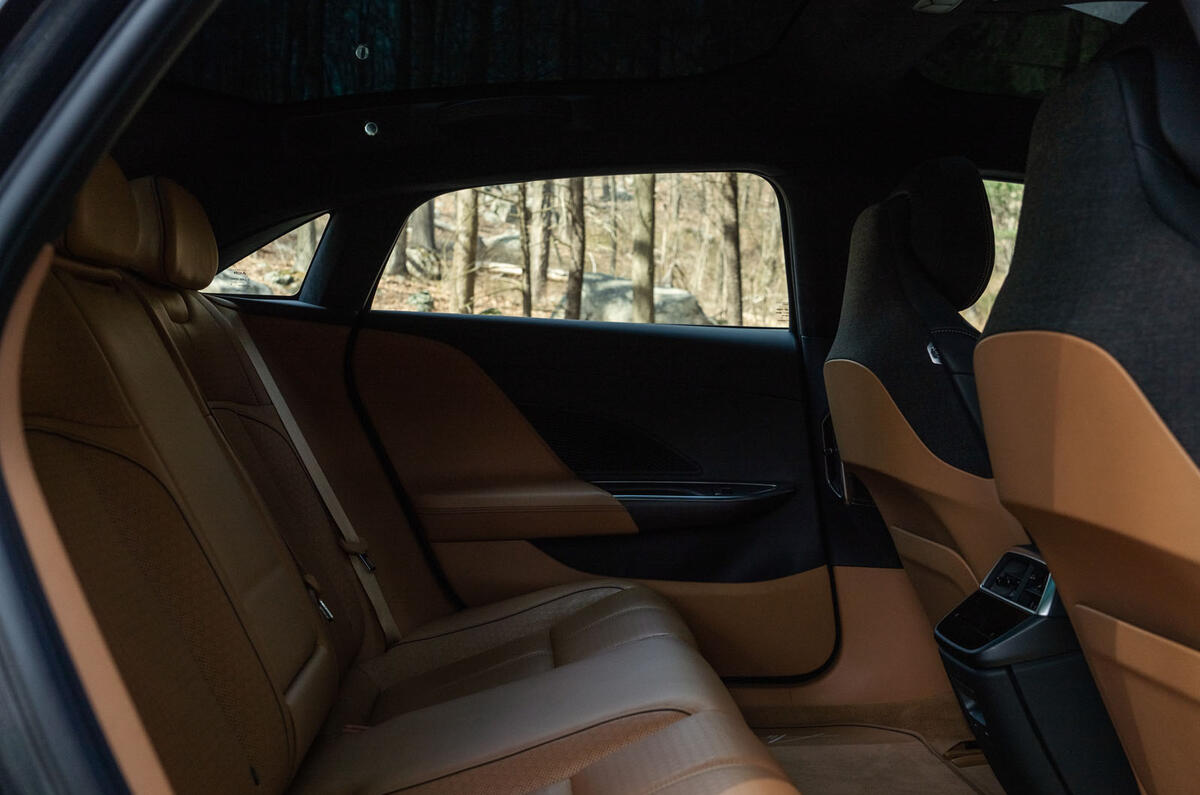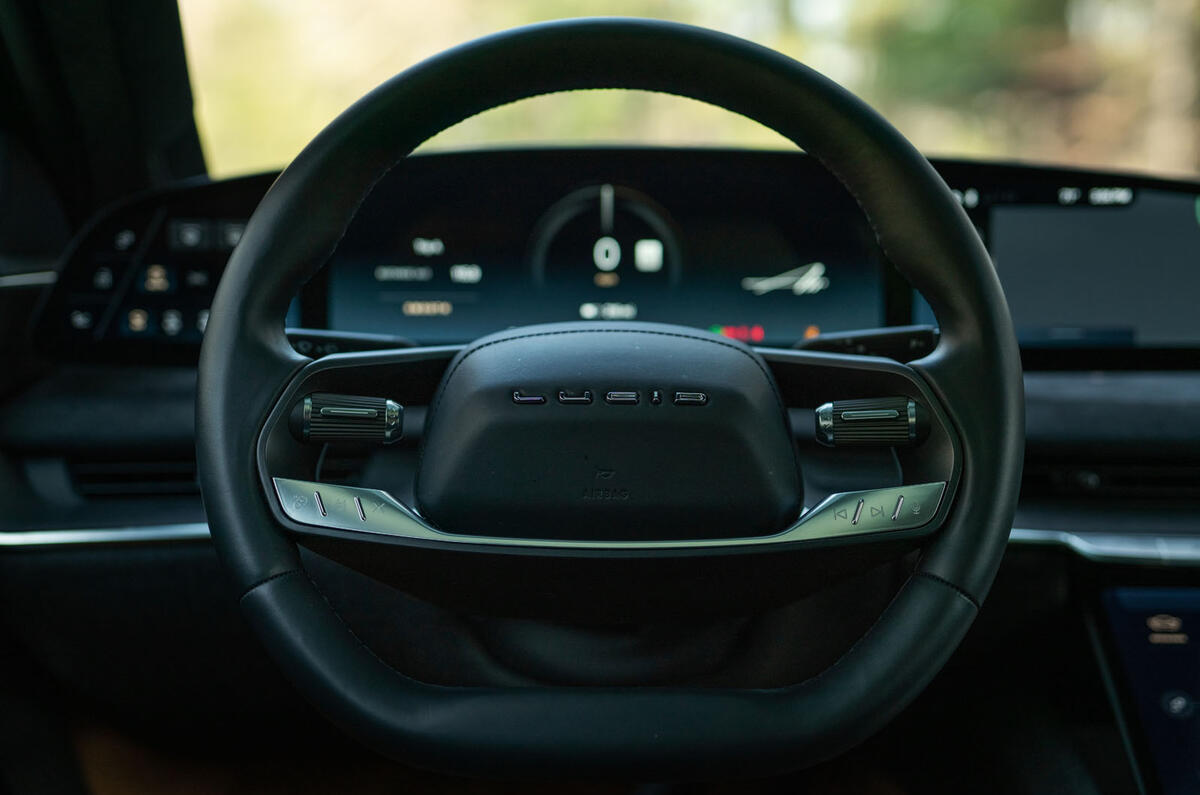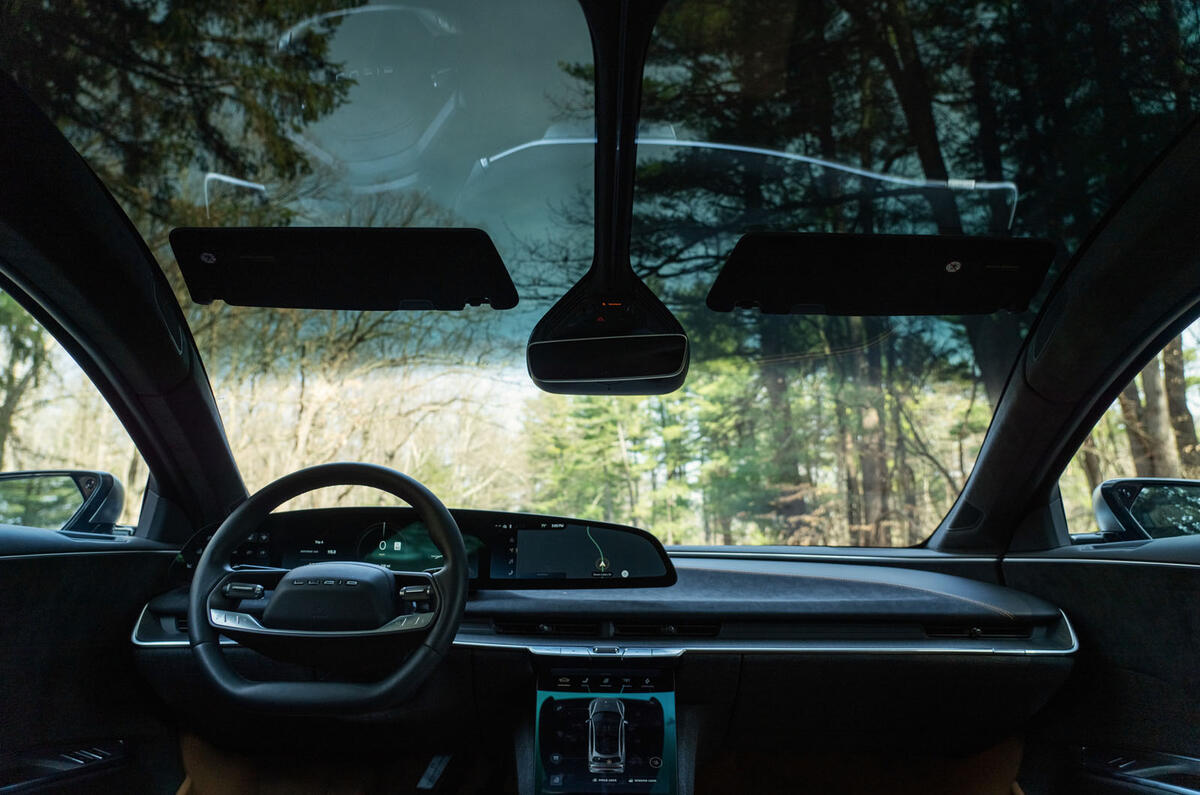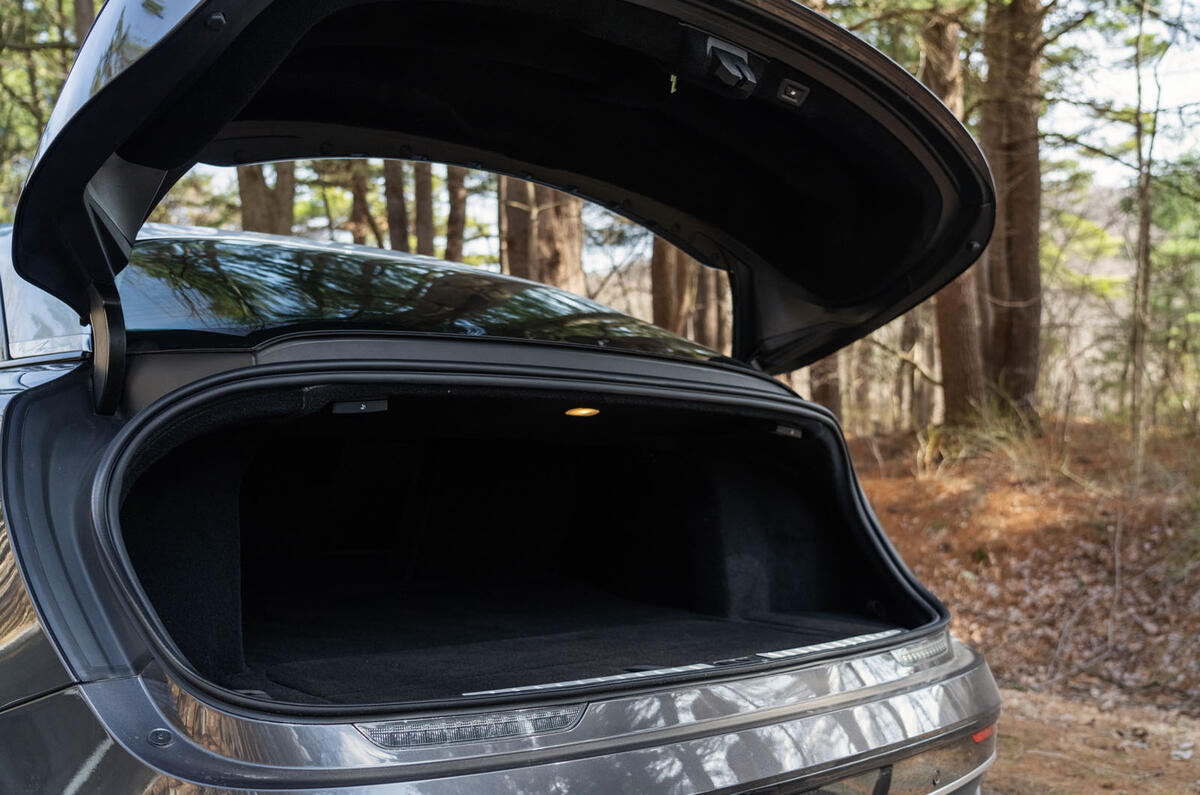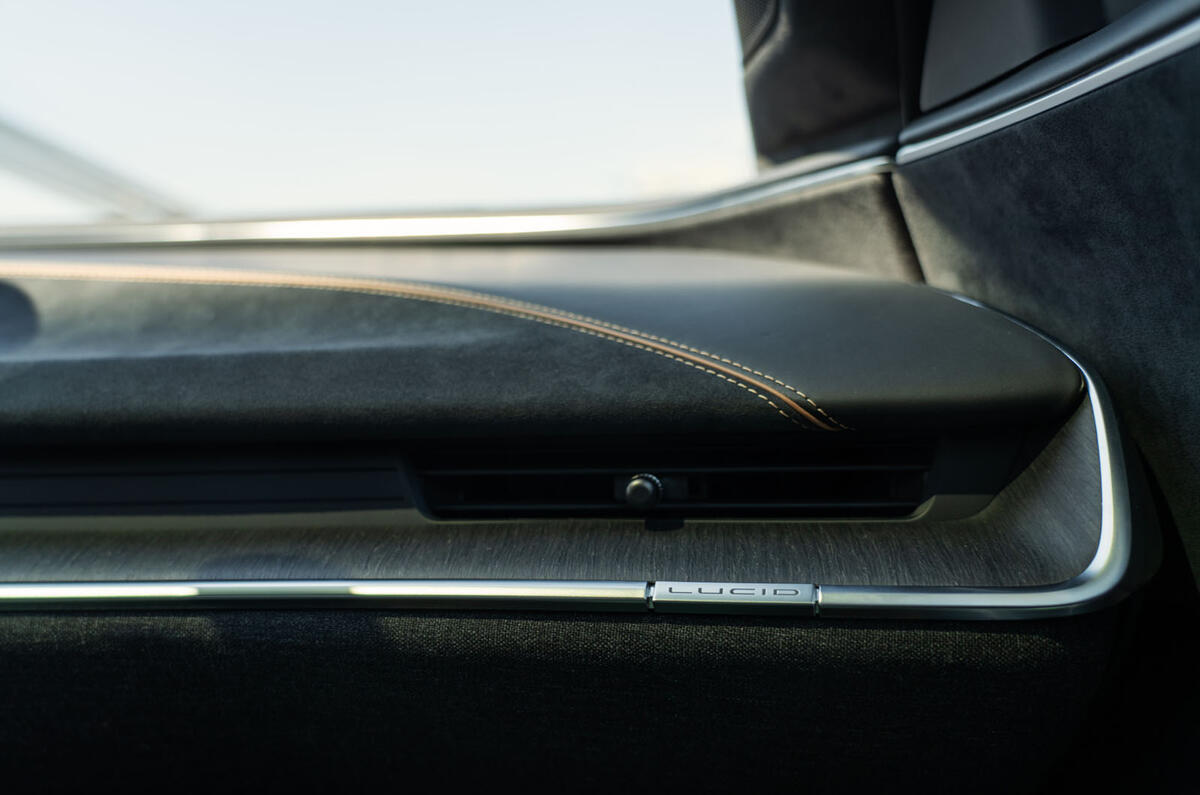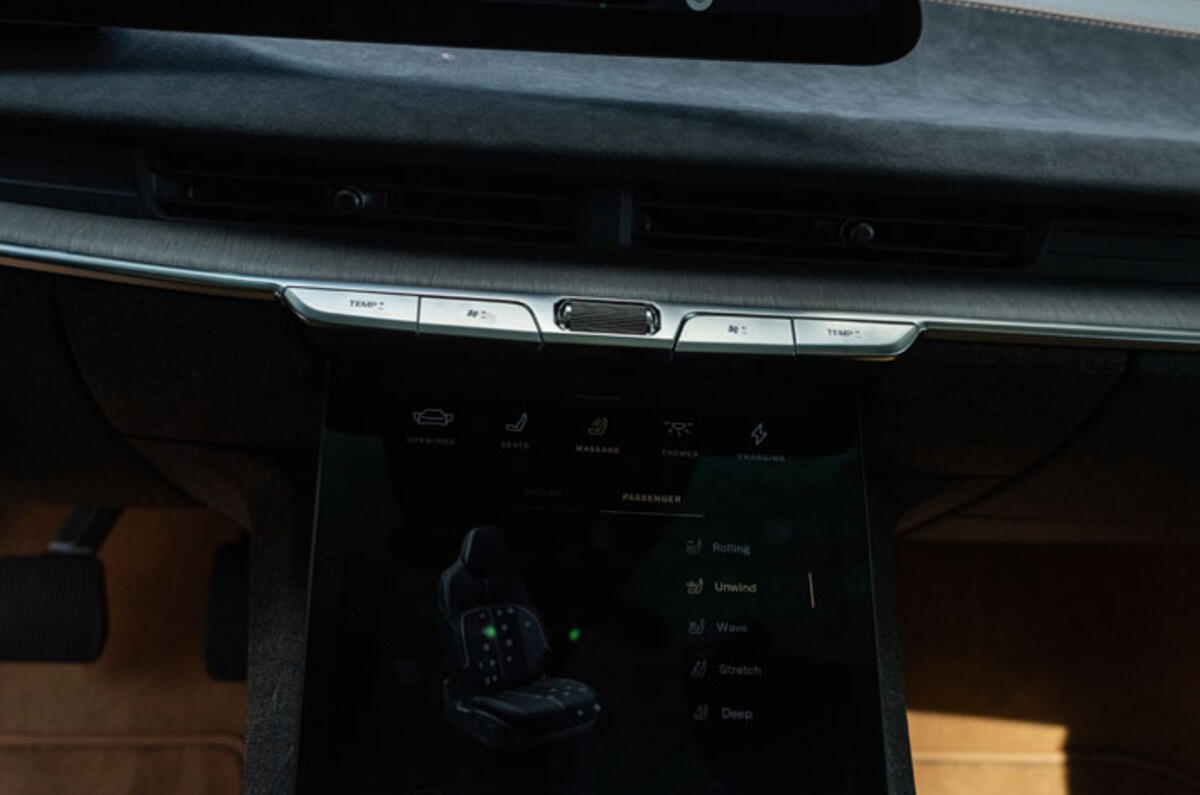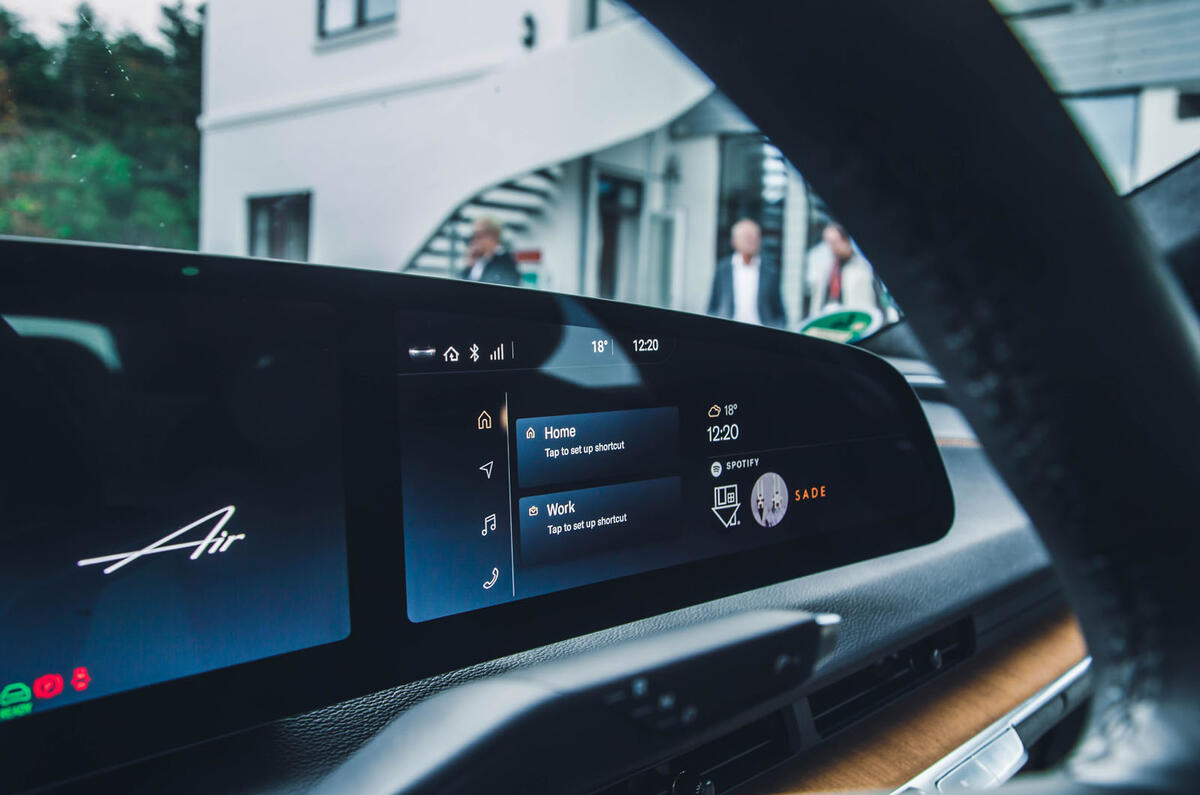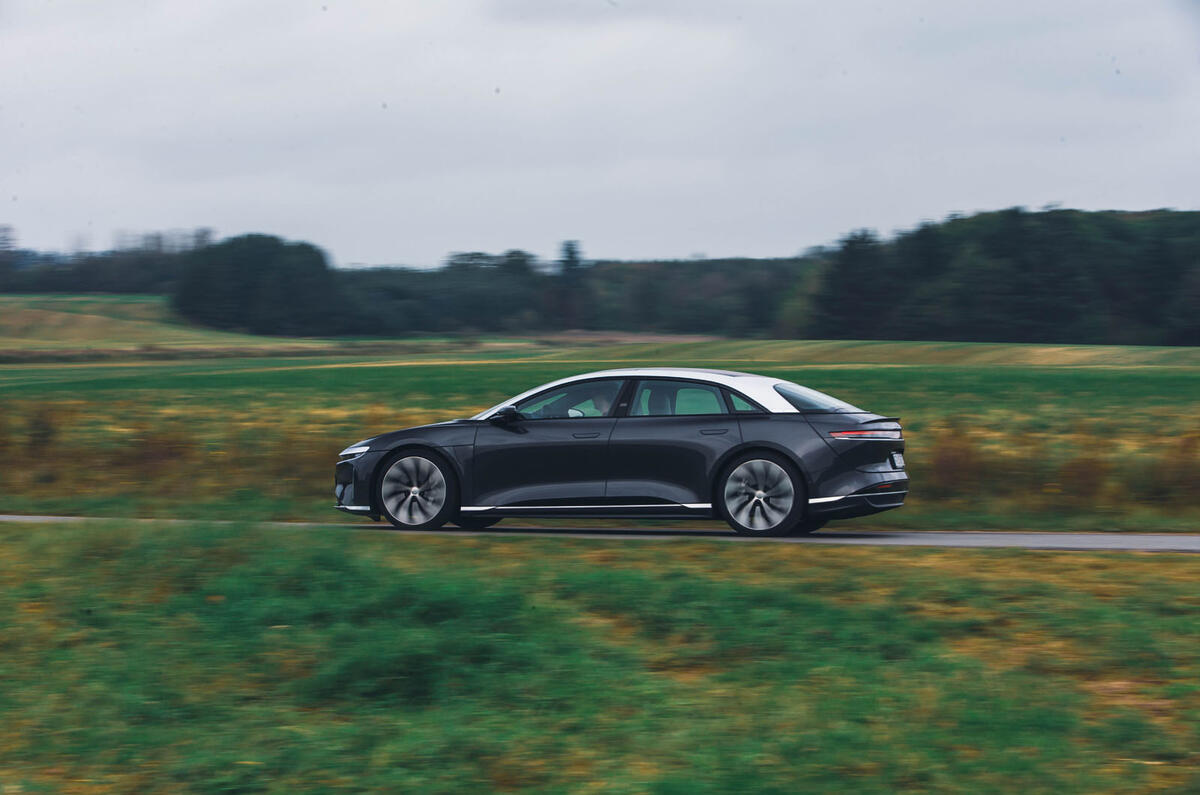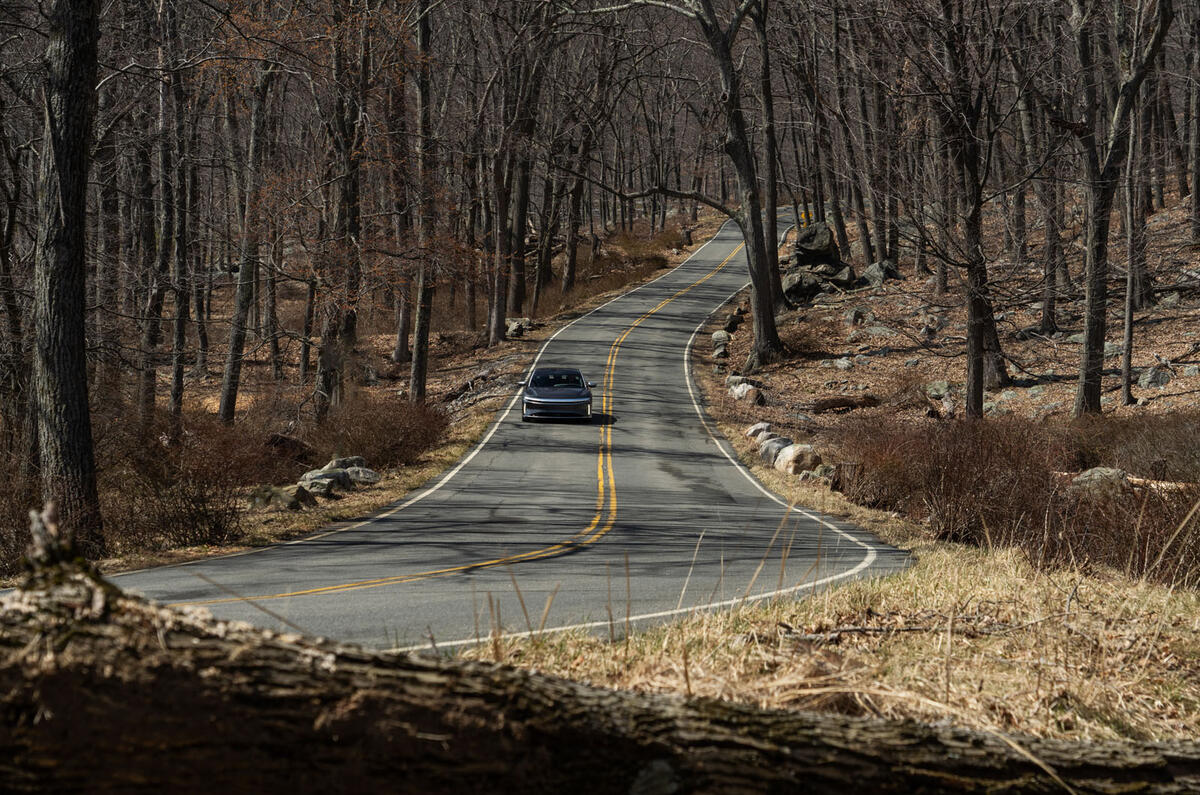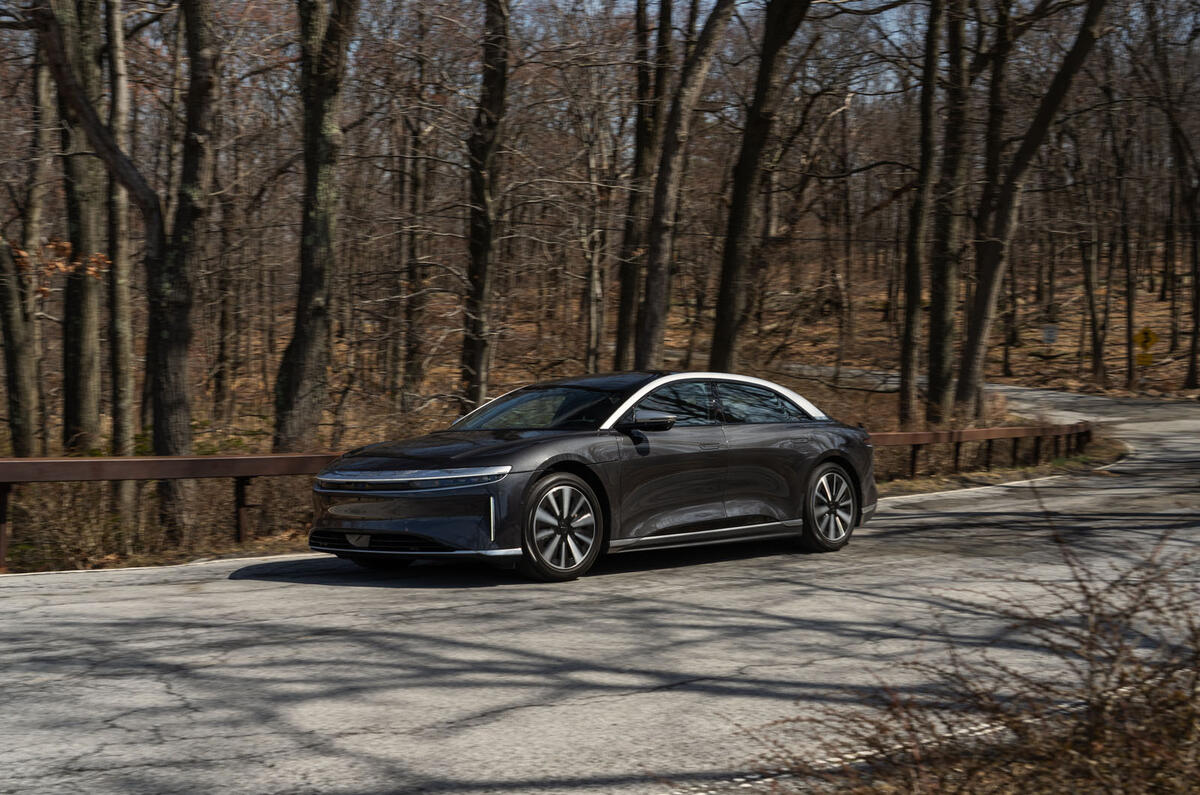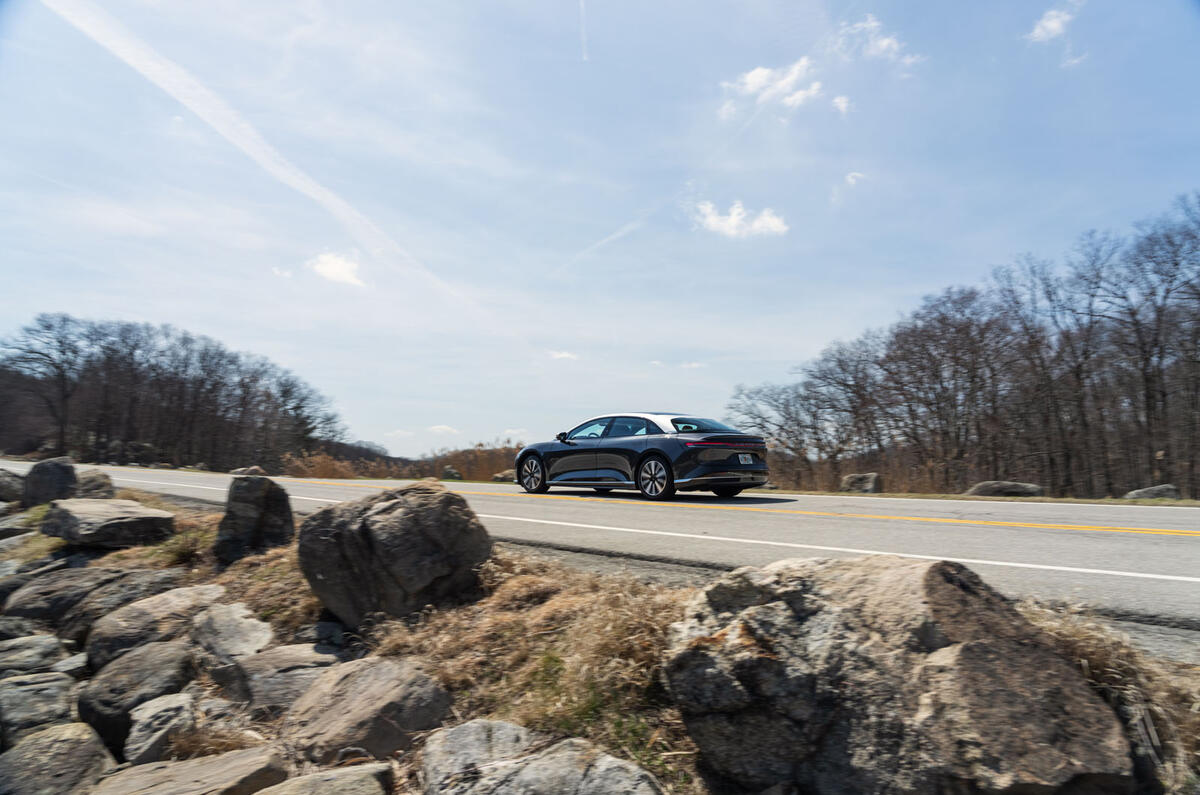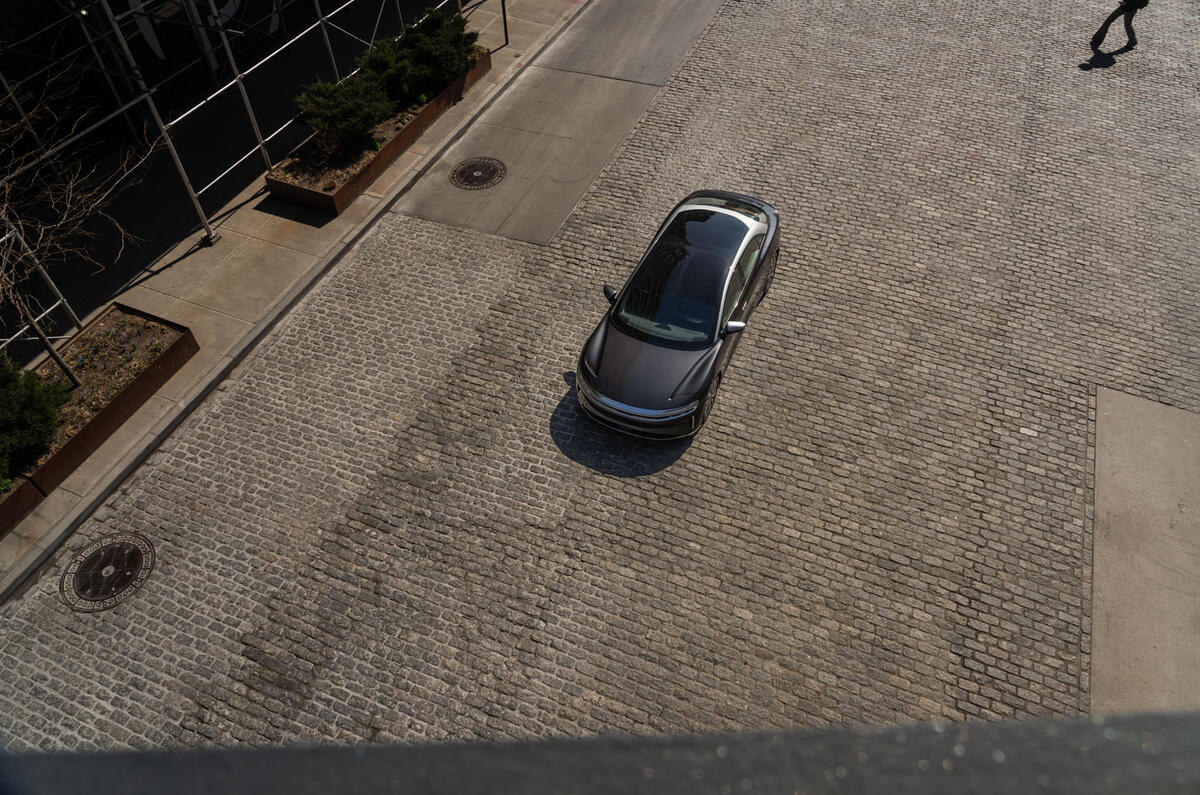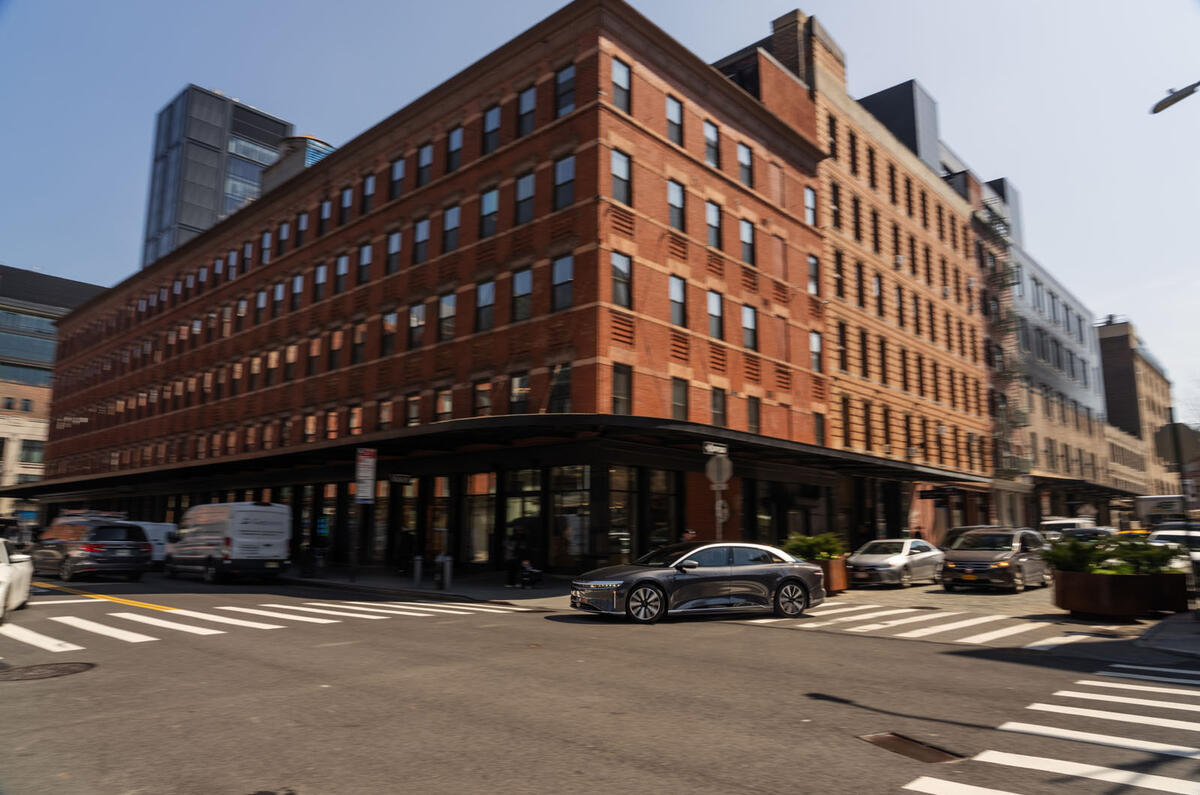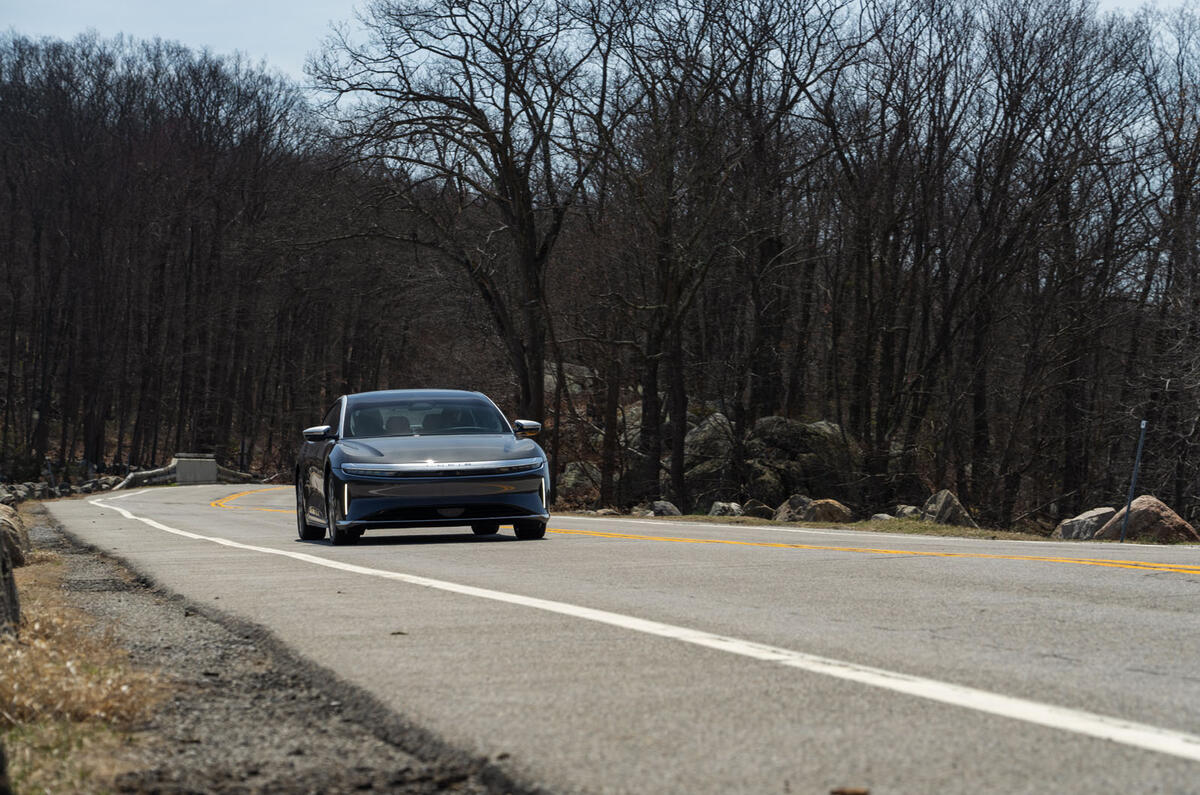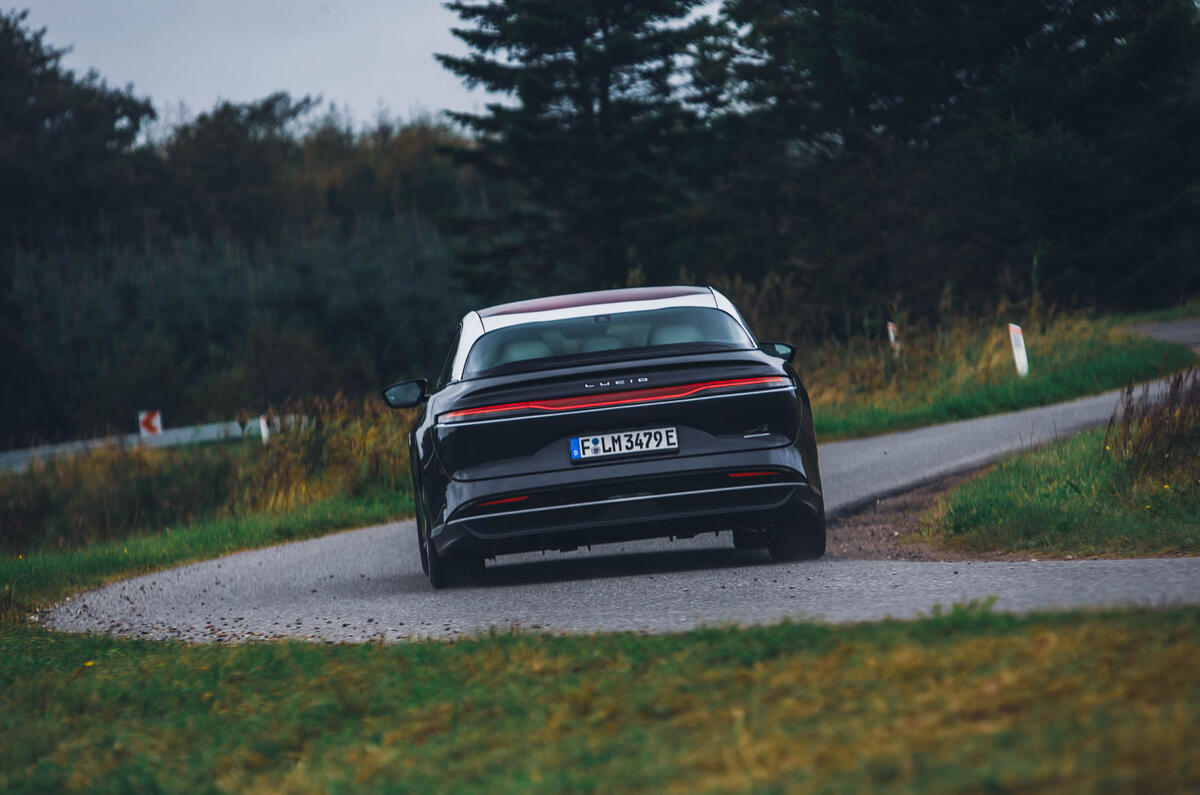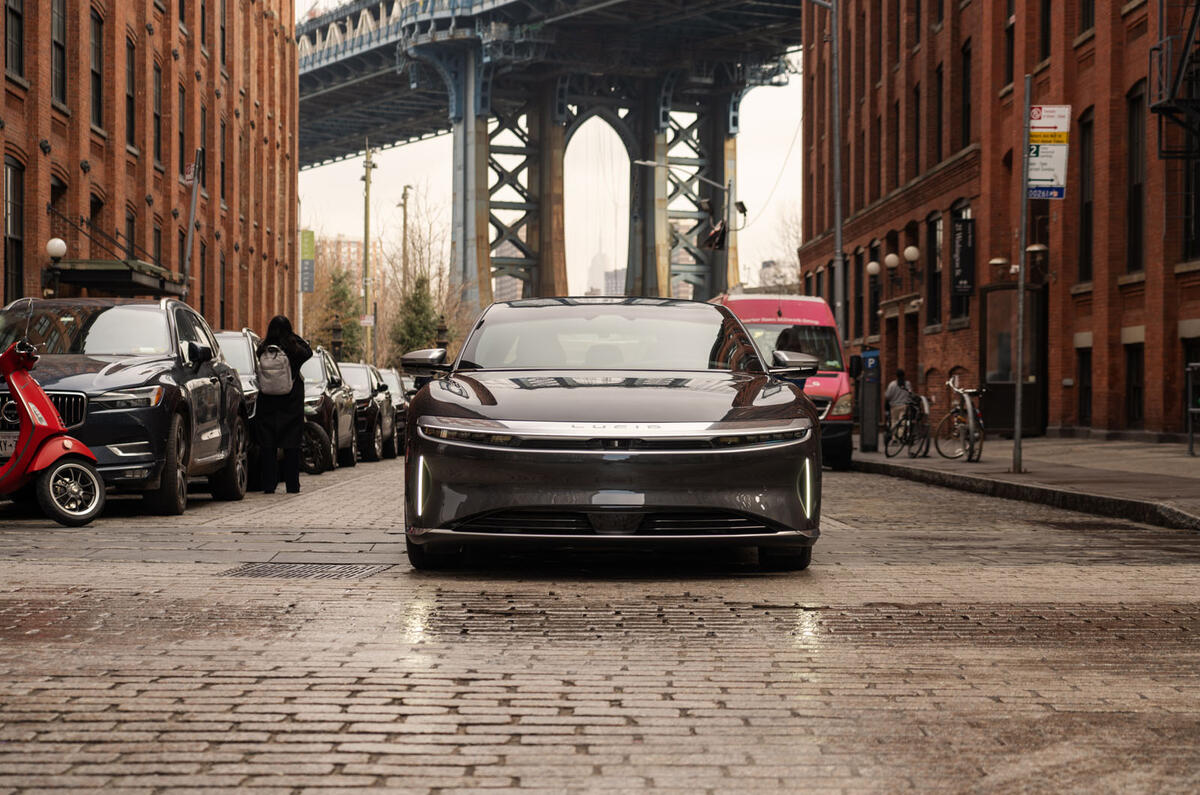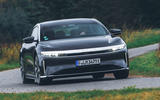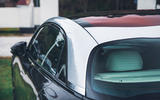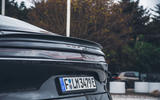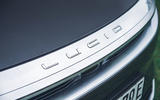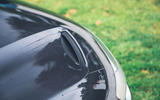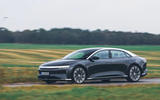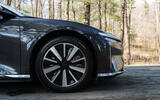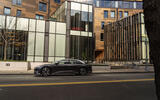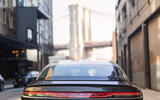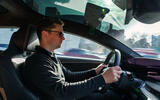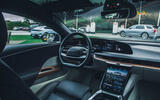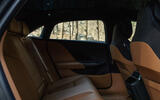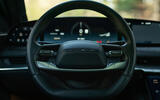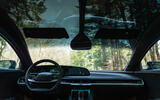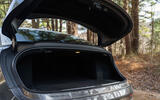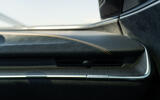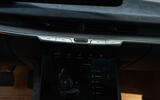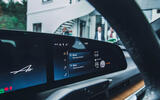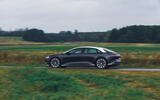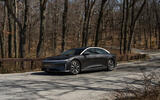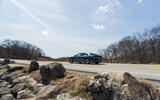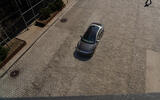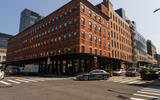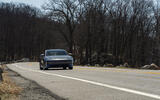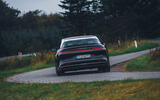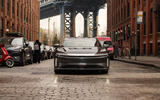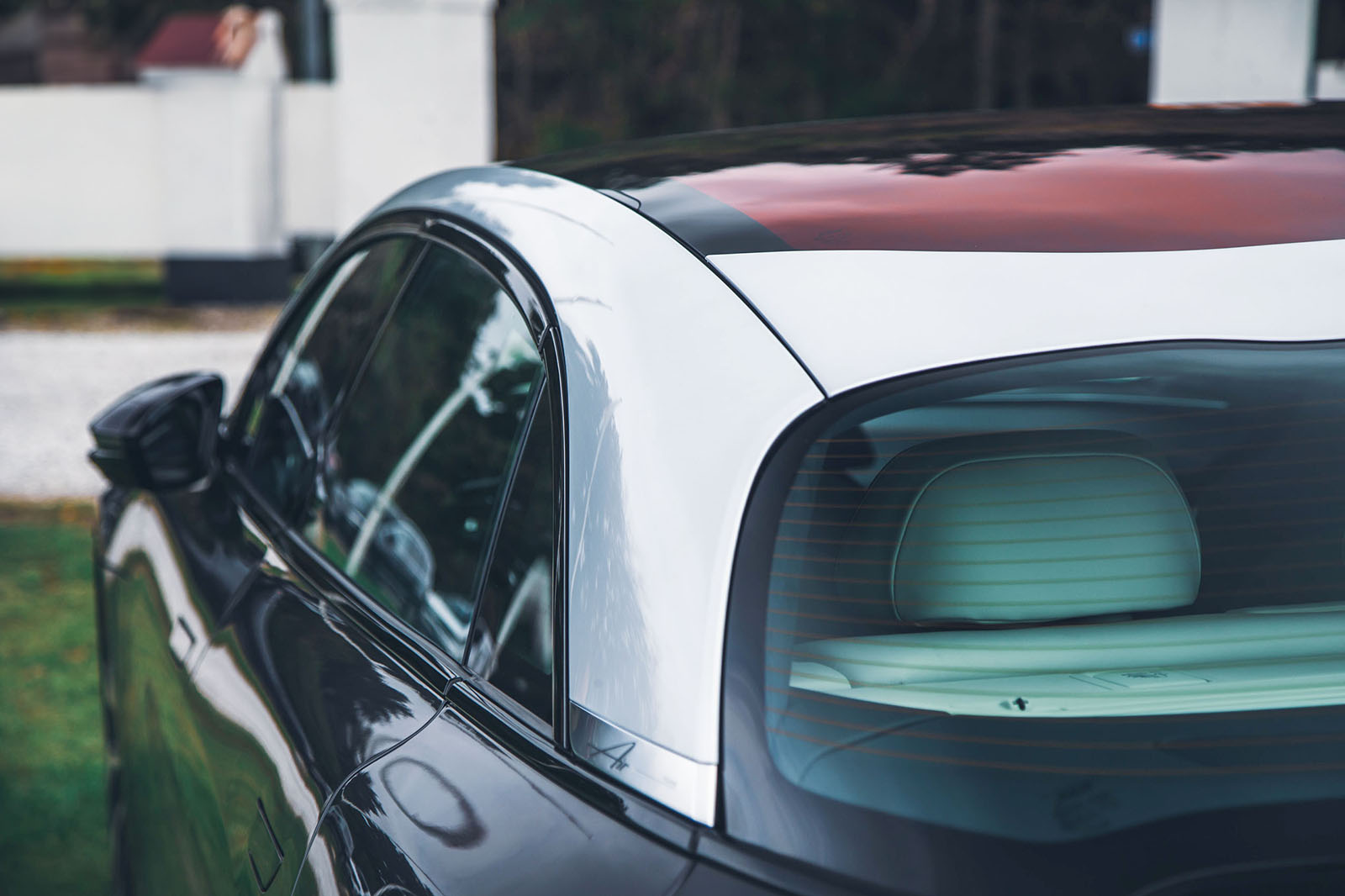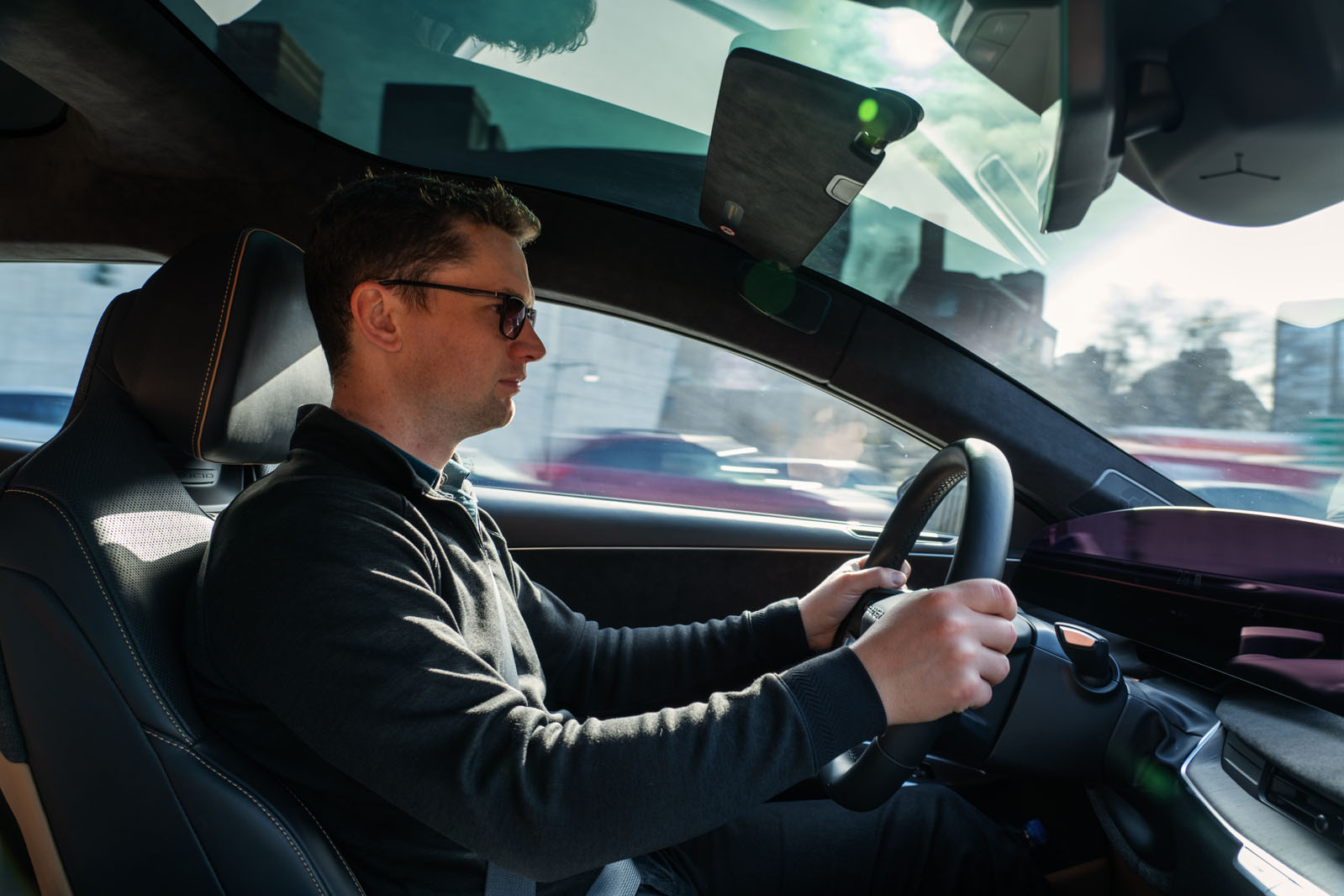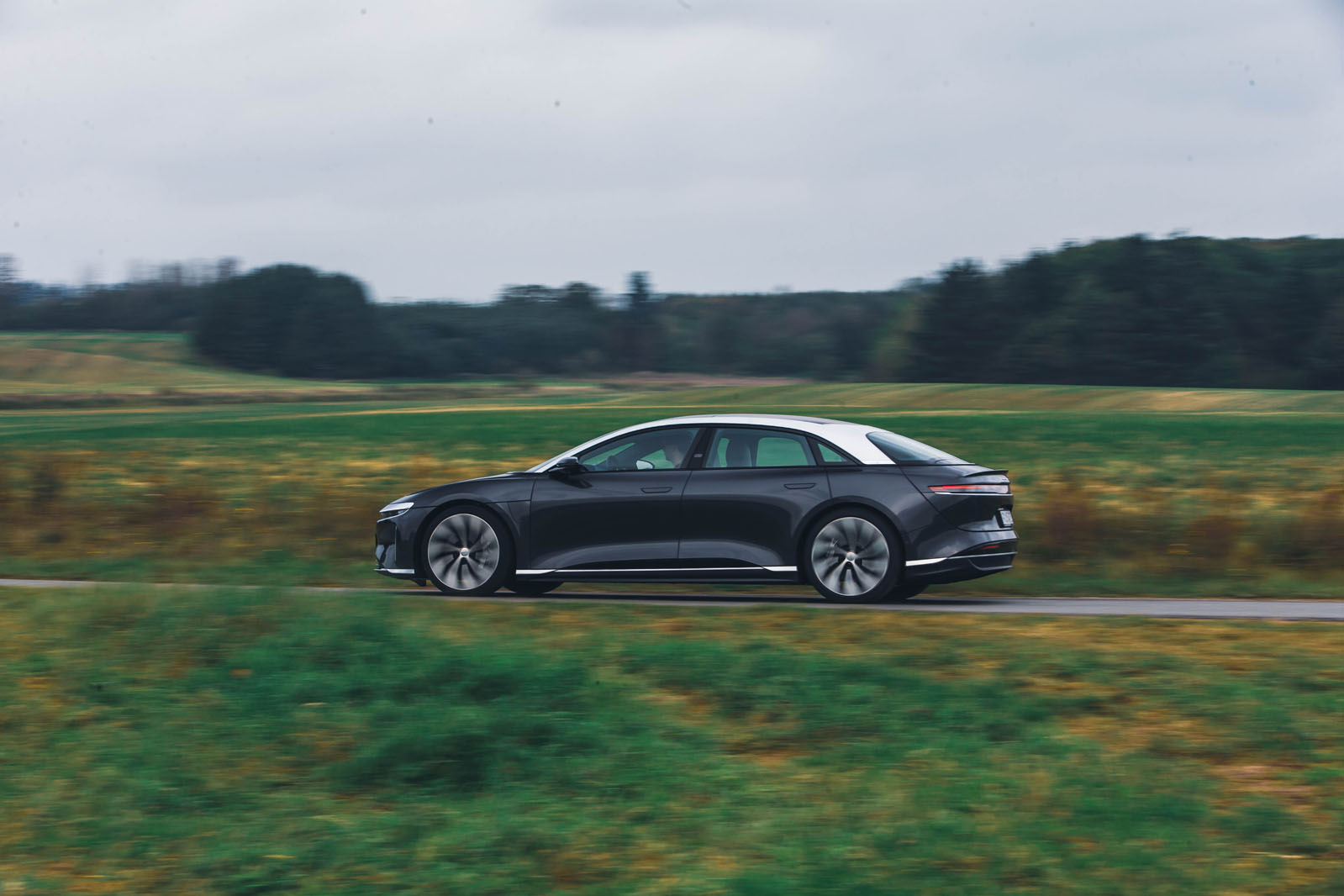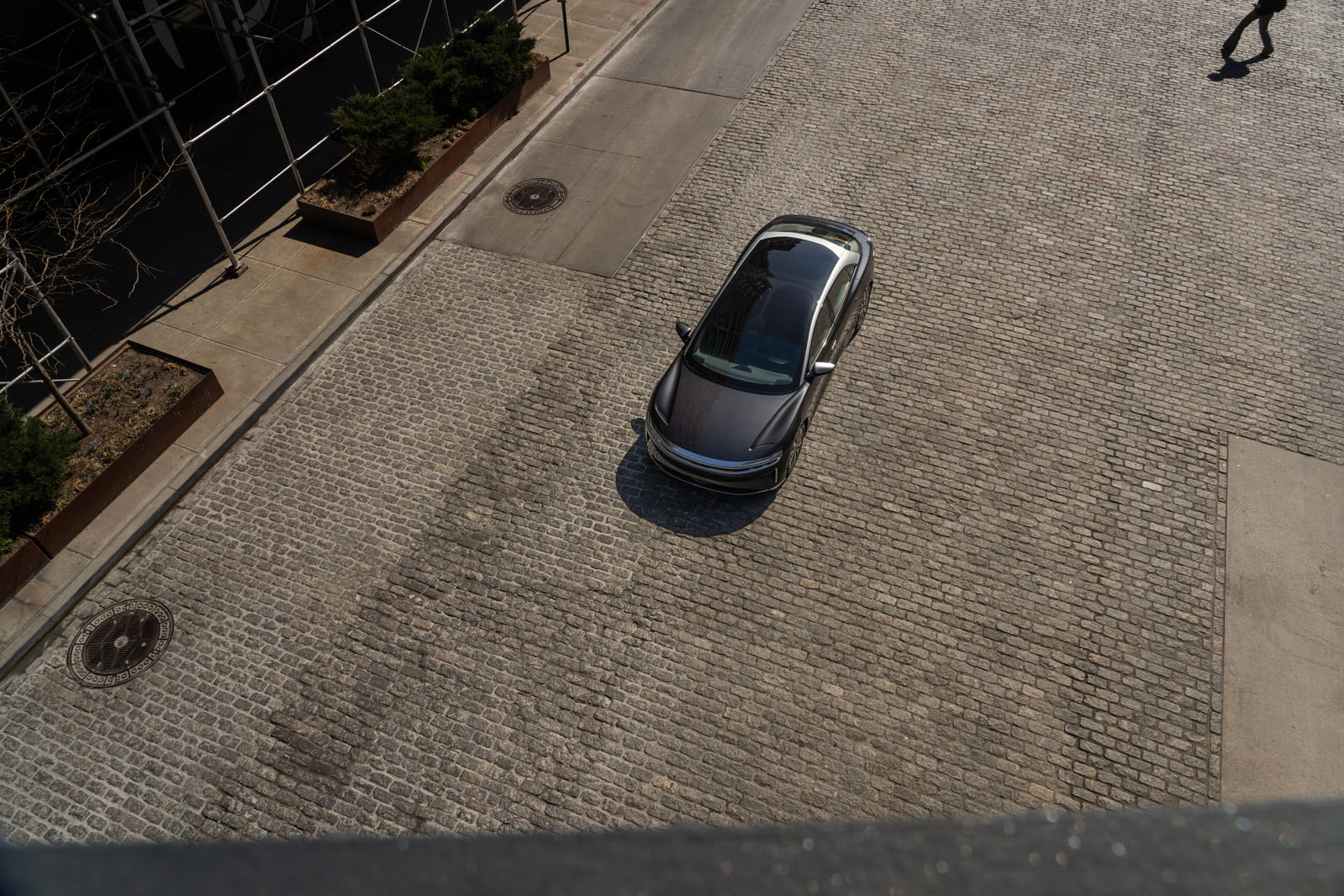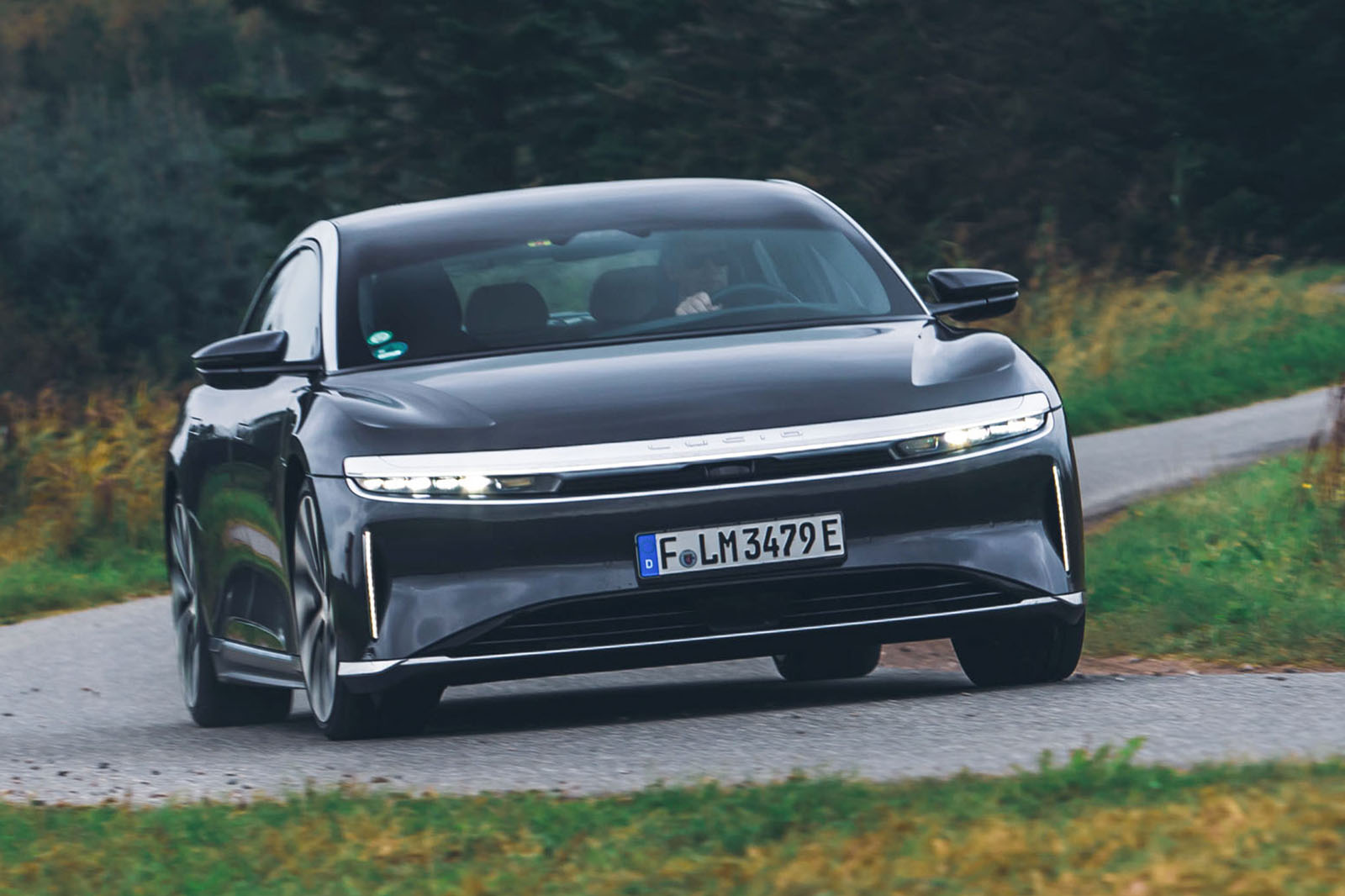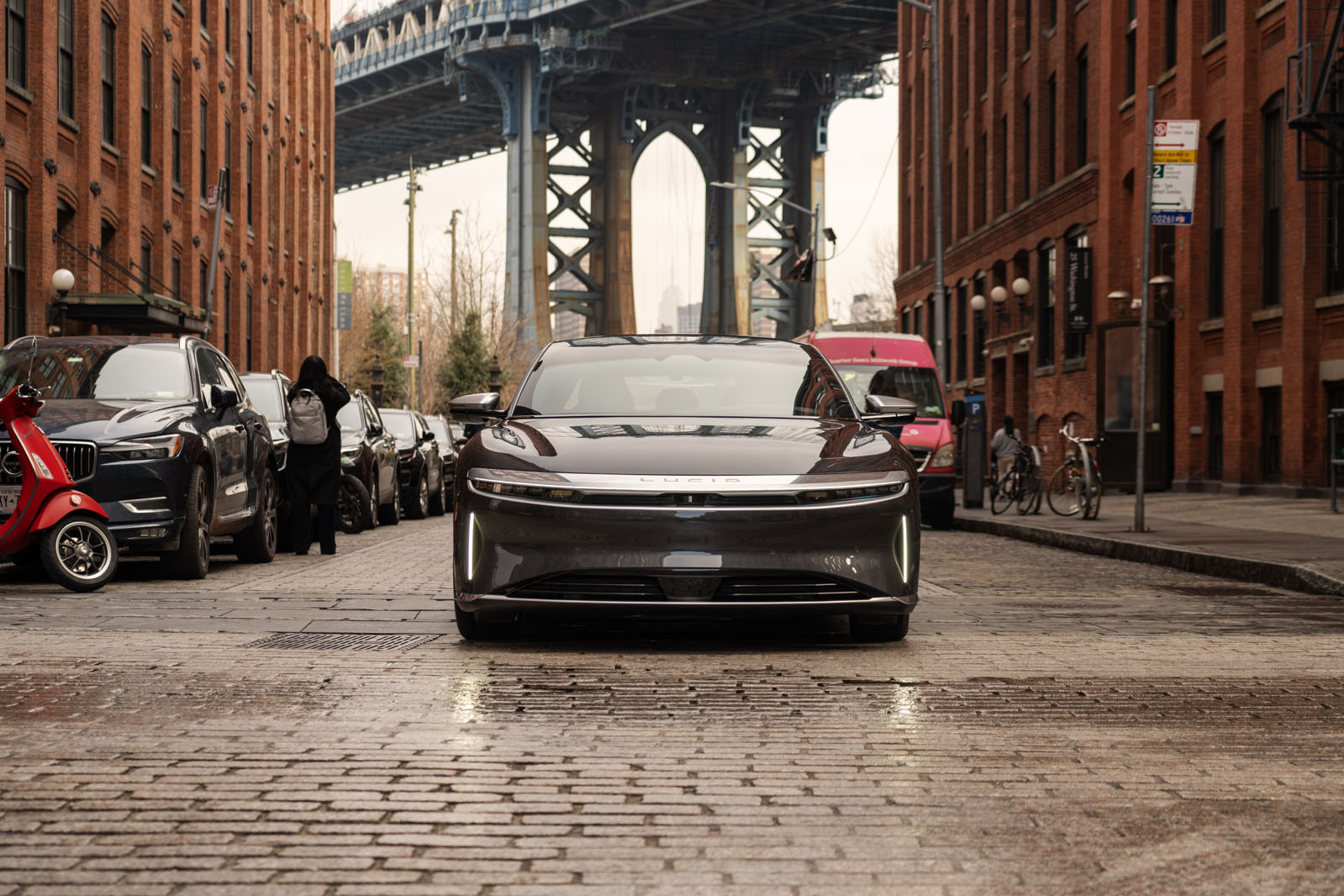Like the exterior, the interior has a really refreshing feel to it. There’s an excellent mix of craftsmanship and technology, the former coming from trim and materials that include nappa leather, alpaca wool, Alcantara and carbon oak. Perceived quality is high, with none of the iffy panel gaps we found in the early-build cars we'd previously driven.
There is also great distinction in the colour palette between the front and the rear, the former being sportier and darker, while the latter is lighter and even more luxurious feeling. It’s what Lucid calls the ‘Tahoe’ interior colour scheme, and it feels both concept car-like and coherent. It’s a resounding success.
While Tesla pushes for minimalism by seemingly compressing the entire interior of its cars onto a single touchscreen, and the German brands go for all-out showiness and technology, the Air sits somewhere between the two.
Running across the dashboard is a slim, curved 32in ‘Glass Cockpit’, which is used for a driver display and infotainment screen, all in 5K resolution. This works with, and is largely controlled by, a lower centre console-mounted tablet-style touchscreen (with haptic feedback), which is able to disappear back into the console with a swipe for a bit of extra theatre.
The graphics are slick, the layout is nice and it all works well, with none of the lag we experienced in those early cars – although Apple CarPlay connectivity was intermittent. Pleasingly, physical buttons remain for the temperature and fan controls.
There are Mercedes-Benz S-Class levels of leg room and comfort for passengers in the rear (an 88kWh entry-level Air Pure model gets even more rear room than our Grand Touring test car, because the latter’s extra battery cells are built up in the rear footwells).
It’s a further benefit of the clever cab-forward packaging that unlocks extra interior space. Despite being further forward, there’s still room for a decent ‘frunk’ storage area and a large boot with a super-wide opening that will even swallow a 7ft surfboard.
It's worth noting that in warmer weather, all of that skyward-facing glass has a greenhouse effect on the cabin, forcing the air conditioning to work a bit harder.



